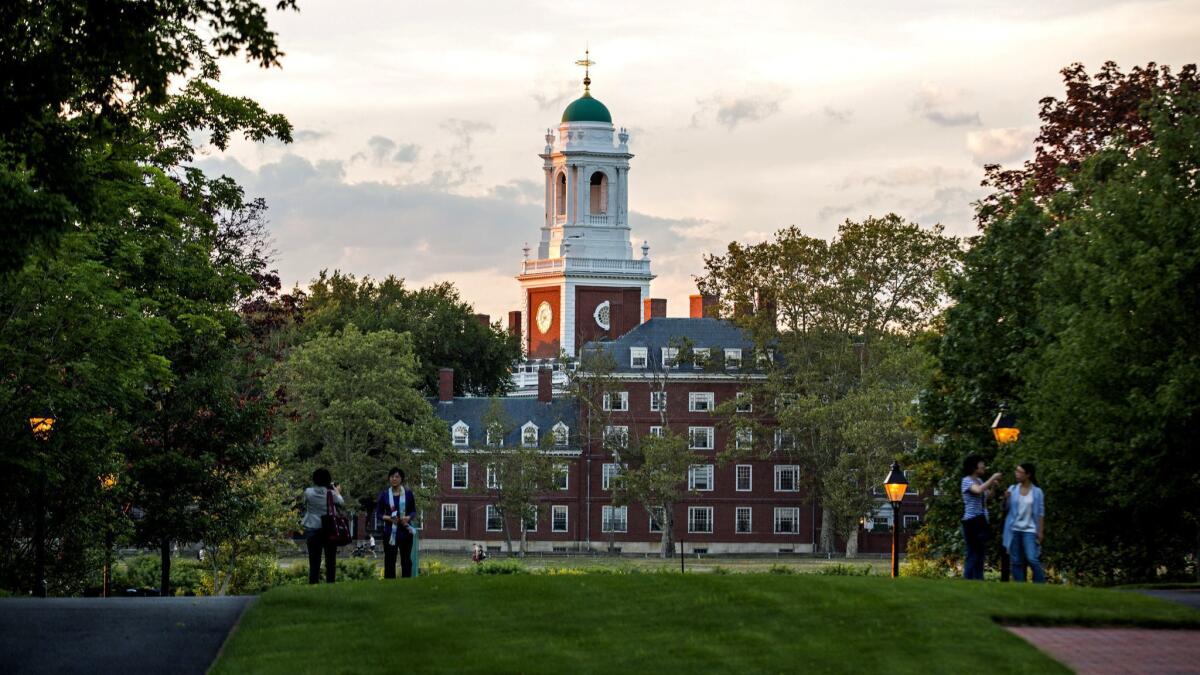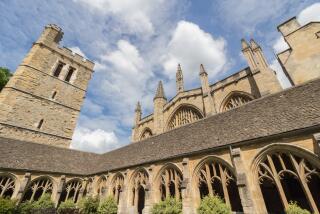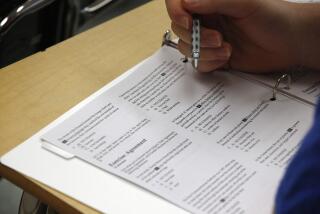Readers React: If legacy students are six times more likely to get into Harvard, why even apply?

To the editor: As a female Asian American student in a top public school district, I feel scared for my future when I read that a “legacy” applicant to Harvard is six times as likely to be admitted as someone whose parents did not attend the prestigious university.
I know that Harvard is not in my future, but what upsets me is that this happens at all. Students work hard for years, staying up late into the night, trying to get accepted at a top college. But the truth is that my peers and I are not being fairly judged by our academic achievements.
If whether I am admitted depends on whether my parents are alumni, then what’s the point in even applying? Is this really the future of education for my generation?
Maybe, one day, Harvard will be a school that admits only legacies.
Ella Chuang, San Marino
..
To the editor: Yes, Harvard does like legacies, because those legacy applicants are usually children of wealthy benefactors, who are mostly white and who have contributed enormously to Harvard’s endowment. This fund supports student aid, faculty positions, innovative academic programs, medical research and libraries.
In addition, endowments allow colleges to develop student access and diversity.
Keep in mind, Ivy League universities are not going to admit legacy-status students with a mediocre academic record. It might only come into play when comparing equally qualified applicants.
It’s a quid pro quo arrangement, but Harvard, Yale, Princeton and other elite institutions offer a higher education because of those endowments.
Giuseppe Mirelli, Los Angeles
Follow the Opinion section on Twitter @latimesopinion and Facebook.
More to Read
A cure for the common opinion
Get thought-provoking perspectives with our weekly newsletter.
You may occasionally receive promotional content from the Los Angeles Times.






